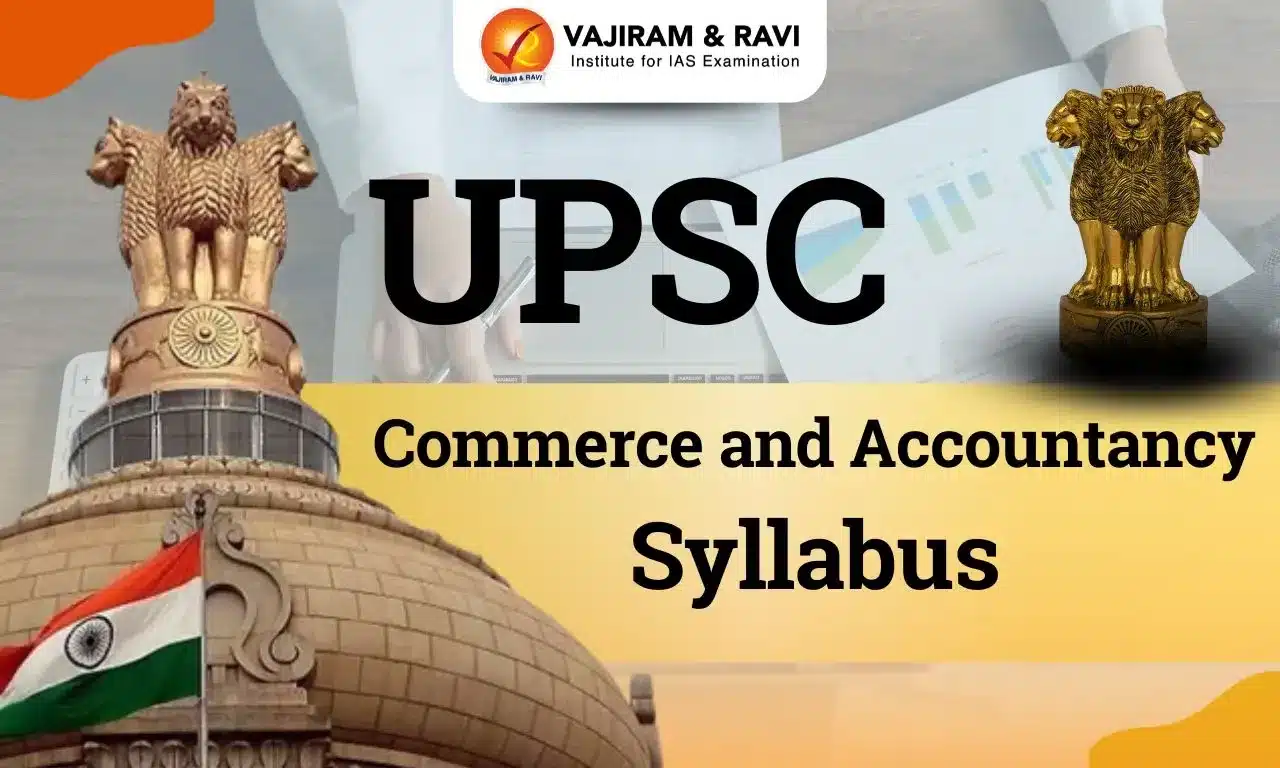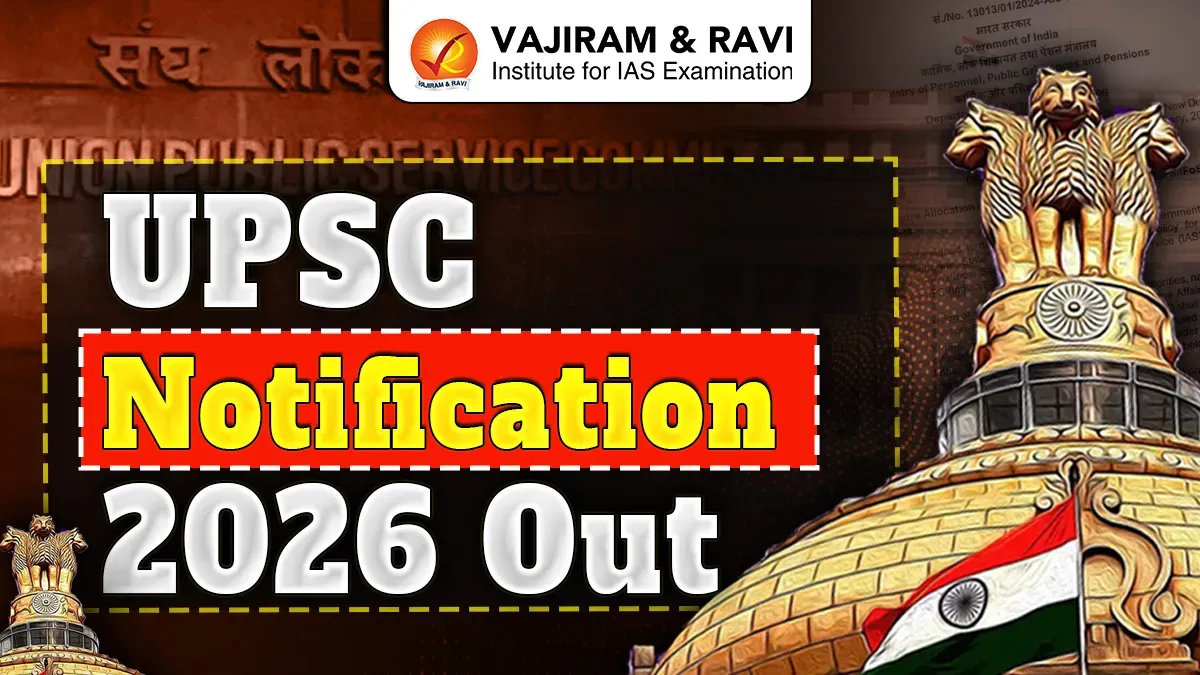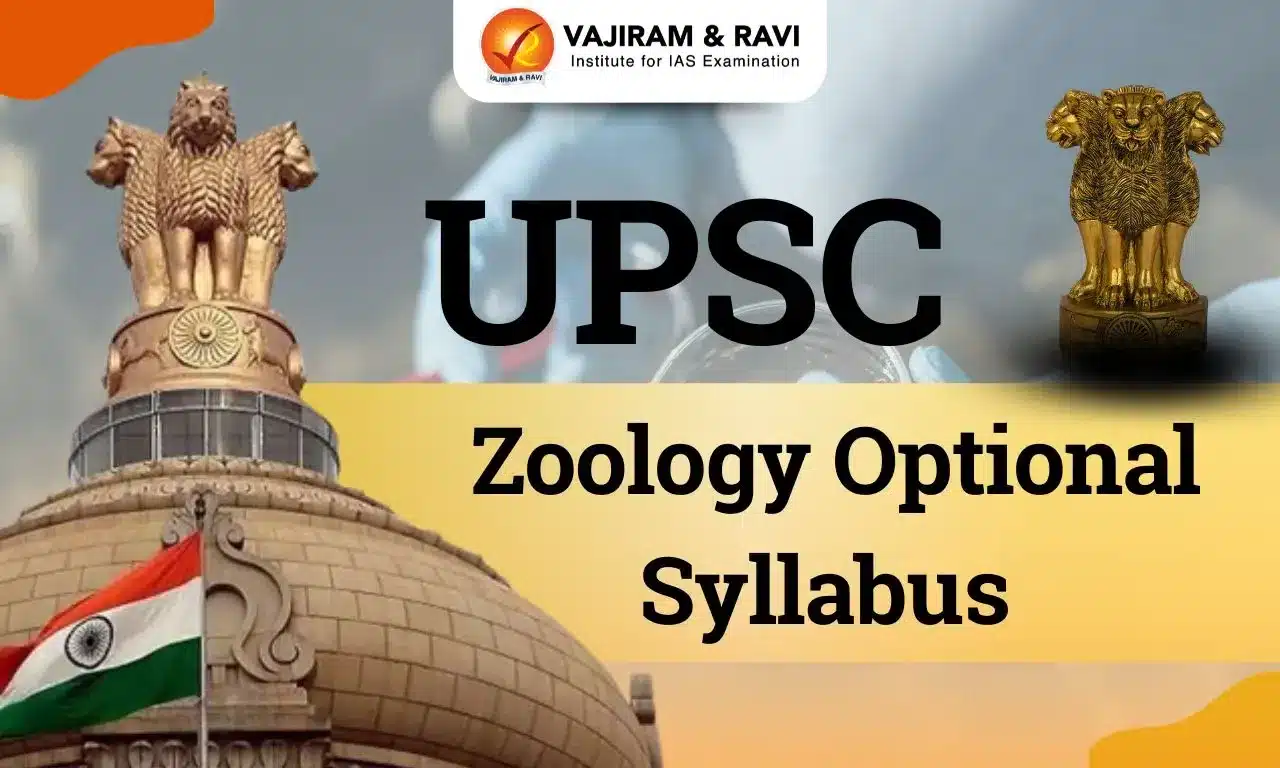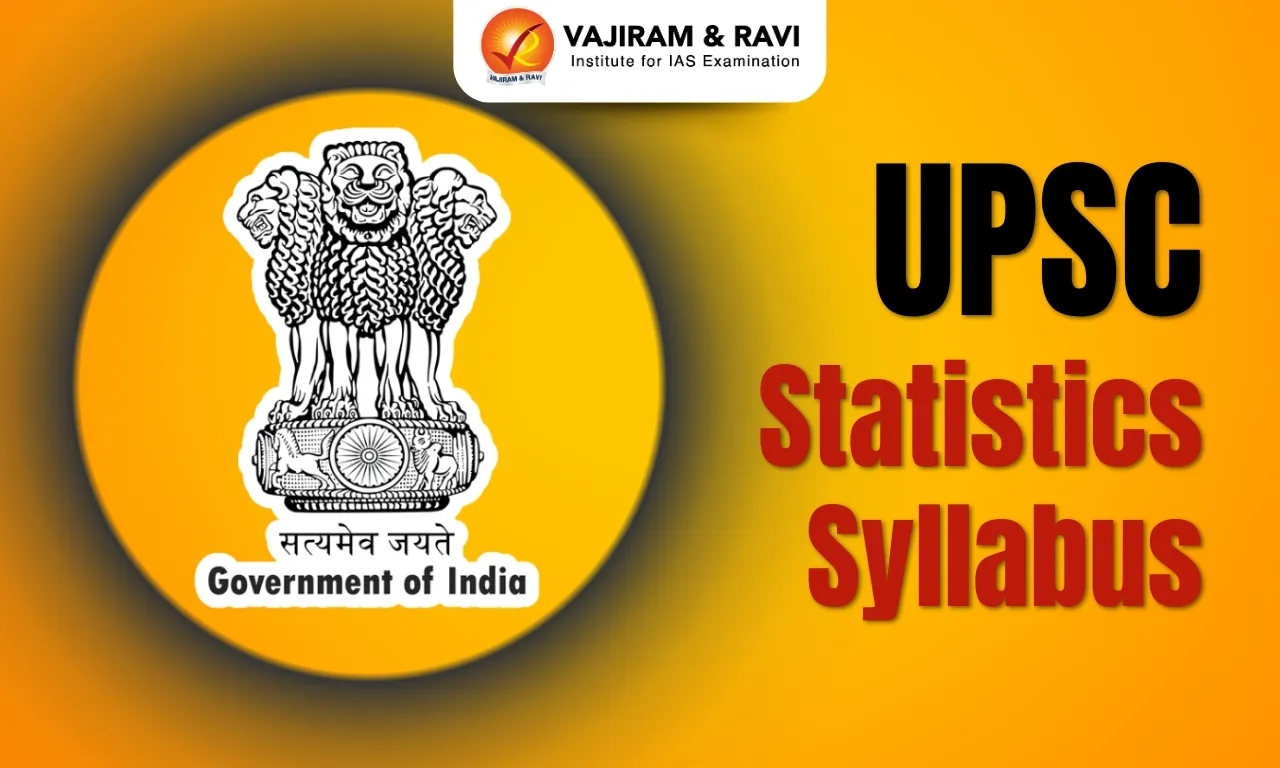UPSC Commerce and Accountancy Syllabus Commerce and Accountancy is one of the most advantageous optional subjects for UPSC aspirants with a commerce background. It consists of two papers, Paper 1 and Paper 2, each with 250 marks.
This article covers the UPSC Commerce and Accountancy optional syllabus for both Paper 1 and Paper 2, a few tips on how to prepare for this subject, and essential topics of the subject.
UPSC Commerce and Accountancy Syllabus
UPSC Commerce and Accountancy is one of the most popular optional subjects among aspirants with a commerce background. It is a lengthy and technical optional subject with a defined syllabus. Being lengthy and technical in nature, it requires proper preparation and multiple revisions.
This optional subject plays an instrumental role in aiding aspirants to learn about basic financial literacy, the economic evolution from the currency of the day to the digital currency of today, and how businesses work to create profits.
It carries a weightage of 500 marks in the UPSC CSE Mains Examination, that is, 250 marks for each paper. Accounting, auditing, financial management, tax accounting, and human resource management are among the major important topics covered under the commerce optional.
UPSC Commerce and Accountancy Syllabus for Paper 1
Commerce and Accountancy Optional Paper 1 focuses on the principles and practices of financial accounting, cost accounting, and auditing. It covers topics like accounting standards, financial statement analysis, and various aspects of auditing and assurance services. Let's have a look at the detailed syllabus of Commerce and Accountancy Optional Paper 1 :
| Commerce and Accountancy Optional Paper 1 Syllabus | |
| Topics | Subtopics |
| Accounting, Taxation & Auditing | |
| 1. Financing Accounting |
|
| 2. Cost Accounting |
|
| 3. Taxation |
|
| 4. Auditing |
|
| Financial Management, Financial Institutions and Markets | |
| 1. Financial Management |
|
| 2. Financial Markets and Institutions |
|
UPSC Commerce and Accountancy Syllabus for Paper 2
Commerce and Accountancy Optional Paper 2 delves into business organization, management, and taxation. It includes topics such as corporate governance, financial management, human resource management, and direct and indirect tax laws. Here is the detailed Syllabus of Commerce and Accountancy Optional Paper 2:
| Commerce and Accountancy Optional Paper 2 Syllabus | |
| Topics | Subtopics |
| Organisation Theory and Behaviour | |
| 1. Organisation Theory |
|
| 2. Organisation Behaviour |
|
| Human Resources Management and Industrial Relations | |
| 1. Human Resources Management (HRM) |
|
| 2. Industrial Relations (IR) |
|
UPSC Commerce and Accountancy Optional Syllabus PDF
Here's the latest updated UPSC Commerce and Accountancy Optional Syllabus PDF
UPSC Commerce and Accountancy Optional Syllabus Preparation Strategy
Commerce and Accountancy Optional being one of the scoring optional subjects in UPSC CSE Mains, this optional requires proper preparation with adequate time. Aspirants should have conceptual clarity of the core topics due to the technical nature of the subject. Both paper 1 and paper 2 are theoretical, while paper 1 is a blend of theoretical and practical concepts. Many of the questions asked in paper 1 are in numerical form. Thus it requires a lot of practice and revisions to brush up on the concepts.
While preparing for the UPSC Commerce and Accountancy syllabus, the following points should be taken into consideration:
- First carefully read and review the syllabus and filter out syllabus-centric topics. Next, start studying the previous year's questions and analyse the major topics, as many questions are asked repetitively. Due to the vast syllabus, the syllabus should be covered thoroughly.
- Making notes is extremely important. It should include diagrams, definitions, examples, and key points without notes being too bulky. This will be helpful in easy revisions and answer writing. Adding relevant diagrams and flowcharts from these notes in both paper 1 and paper 2 can provide you with an edge.
Strategy for Commerce and Accountancy Optional Paper 1:
- Paper 1 is mostly about practical numerical questions. A strong hold over concepts in Paper 1 will help in getting excellent marks on these questions. Adequate practice and revision is the key to detecting errors and mistakes and completing the questions within the given time. However, aspirants should also give equal emphasis on the theoretical aspects of paper 1, as the conceptual clarity of topics is helpful in answering such questions, especially when the numericals are unpredictable.
Strategy for Commerce and Accountancy Optional Paper 2:
- Paper 2 is mostly theoretical in nature. Thus, having a good hold of the concepts and covering the syllabus comprehensively should be the priority. Revision and making short notes are the essential aspects of the paper 2 strategy. Because of the inherent theoretical nature of Paper 2, answer writing is extremely important. Regular practice is essential in this regard.
Even though current affairs might not seem important from the standpoint of the Commerce & Accountancy optional subject, they might be used to enhance answers. If possible, an aspirant may cite new approaches from diverse Indian and international companies.
UPSC Commerce and Accountancy Optional Books
To prepare the UPSC Commerce and Accountancy Syllabus effectively, aspirants can refer to several recommended books and study materials. Some popular choices include:
| UPSC Commerce and Accountancy Optional Books | |
| Commerce and Accountancy Optional Paper 1 |
|
| Commerce and Accountancy Optional Paper 2 |
|
| Other Related UPSC Optional Syllabus | ||
|---|---|---|
|
UPSC Animal Husbandry & Veterinary Science Optional Syllabus |
|
|
Last updated on February, 2026
→ UPSC Notification 2026 is now out on the official website at upsconline.nic.in.
→ UPSC IFoS Notification 2026 is now out on the official website at upsconline.nic.in.
→ UPSC Calendar 2026 has been released.
→ Check out the latest UPSC Syllabus 2026 here.
→ Join Vajiram & Ravi’s Interview Guidance Programme for expert help to crack your final UPSC stage.
→ UPSC Mains Result 2025 is now out.
→ UPSC Prelims 2026 will be conducted on 24th May, 2026 & UPSC Mains 2026 will be conducted on 21st August 2026.
→ The UPSC Selection Process is of 3 stages-Prelims, Mains and Interview.
→ Prepare effectively with Vajiram & Ravi’s UPSC Prelims Test Series 2026 featuring full-length mock tests, detailed solutions, and performance analysis.
→ Enroll in Vajiram & Ravi’s UPSC Mains Test Series 2026 for structured answer writing practice, expert evaluation, and exam-oriented feedback.
→ Join Vajiram & Ravi’s Best UPSC Mentorship Program for personalized guidance, strategy planning, and one-to-one support from experienced mentors.
→ UPSC Result 2024 is released with latest UPSC Marksheet 2024. Check Now!
→ UPSC Toppers List 2024 is released now. Shakti Dubey is UPSC AIR 1 2024 Topper.
→ Also check Best UPSC Coaching in India
UPSC Commerce & Accountancy Optional Syllabus FAQs
Q1. What is the syllabus of commerce and Accountancy in UPSC?+
Q2. Is commerce and Accountancy a good optional for UPSC?+
Q3. What are the subjects in commerce and Accountancy?+
Q4. Is B.Com good for UPSC?+
Q5. Is B.Com student eligible for IAS?+
Tags: UPSC upsc commerece and accountancy syllabus upsc syllabus
















